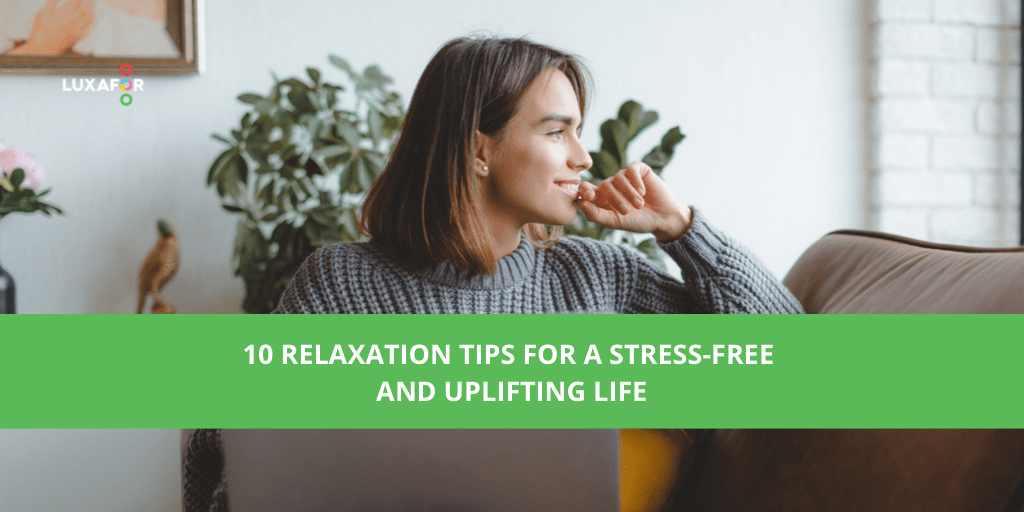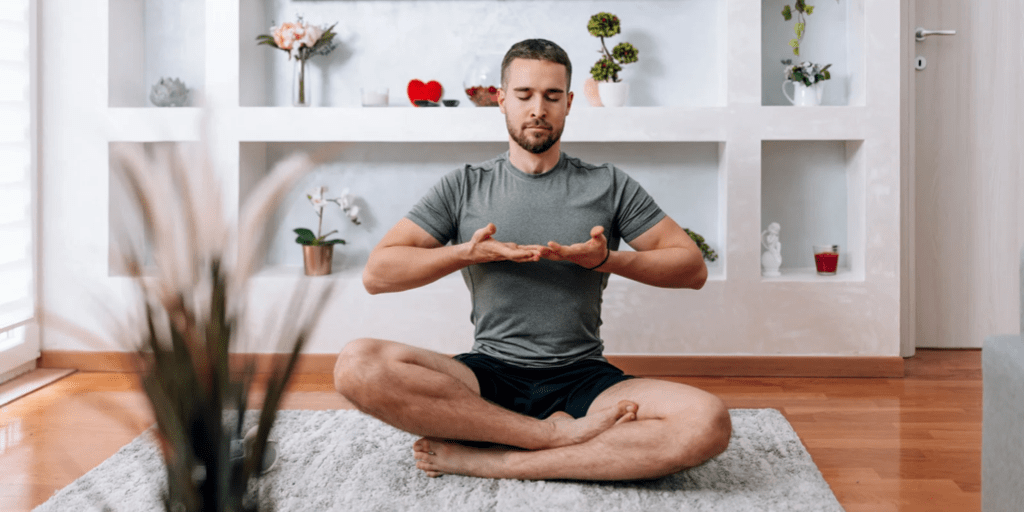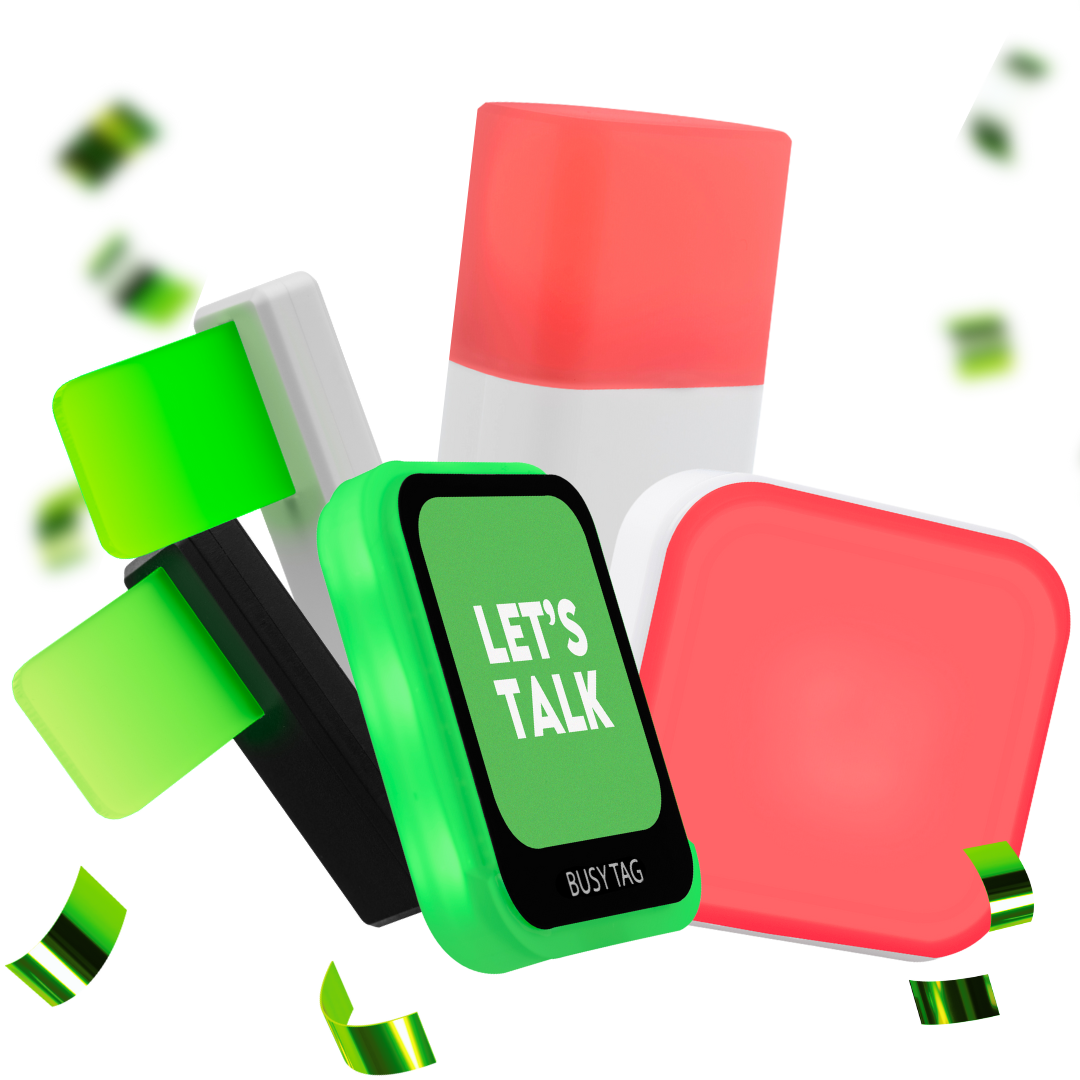10 Relaxation Tips For A Stress-Free And Uplifting Life
We can surely agree that stress is the most common health trigger that affects our immune system and causes health problems physically as well as mentally. But stress as troubling and unwanted as it is, is a normal part of life. No matter if it comes from daily triggers like traffic jams, running late, financial, work or family worries, stress is something we all have to deal with on a daily basis.
While some of the stress can be good – causing excitement, motivating to work harder on an assignment, helping to avoid danger when your defence response is activated; most of it can greatly damage our immune system.
Experiencing too much of stress and constant worrying can have serious effects on your health. In the beginning it can cause you to lose sleep, make you more irritable and prone to anxiety, in worst cases stress can increase your risk of depression, diabetes, heart disease or other health issues.
Willing to create and maintain new habits? Get your free PDF version of Eisenhower Matrix now!
1. Live a healthier lifestyle
Eating a balanced diet, engaging in regular physical activity and getting enough sleep can not only help you physically – it can do wonders for your mental and emotional well-being as well. But good health isn’t just about healthy eating and doing exercise – it is also about having a positive attitude, a positive self-image, and a healthy lifestyle. There are some basic tips and practices on how to maintain your healthy lifestyle and contribute to balanced life as well as overall well-being.
Control your weight: Keep track of your body weight on a regular basis.
Drink water: Plain and simple – stay hydrated and drink water regularly to stay healthy.
Reduce sitting and screen time: Move around and take breaks from sitting for longer periods.
Get enough sleep: There is a very strong connection between sleep quality and quantity and your immune system, focus and productivity.
Avoid alcohol and sugary drinks: Calories in drinks can add up quickly, remember that alcohol should always be consumed in moderation.
Find ways to manage emotions: Find and use coping mechanisms that work best for you.
2. Be your own cheerleader
It is necessary to be your own supporter instead of being your own biggest critic. Learn to practice silencing the voice in your head that tells you that you can’t do something or that you will fail and replace it with a more encouraging voice. When you catch yourself thinking negative thoughts, try to shift the inner dialogue you’re having with yourself. We know – it`s easier to say that than to practice, but it is worth trying to silence that destructive critic from time to time.
Why is it so important to be your own cheerleader? By building your self-belief, we can balance out the feeling of “not being enough” that destroys confidence ever so often. The constant nagging voice in our head telling us we are not doing things as well as we think others are, for not fitting in, not being the best, the smartest, etc… It’s so easy to loose the sight of our own value. Empowering your inner cheerleader helps you see more opportunities and think more clearly. Praising yourself stimulates action and resilience and allows you to stay motivated and productive.
3. Practice gratitude
Practicing gratitude has incredible effects – from improving our mental health to encourage better relationships with others. Building your capacity for gratitude is not difficult at all. It just takes some practice. The more you can bring your attention to the things you feel grateful for, the more you will notice the feeling of gratitude and abundance that will eventually become a new and healthy habit.
Why not be grateful about the little things? This approach will make you appreciate what you already have and take the focus off of the things that are wrong and that you can not control. While you’re practicing positive self-talk and outlook in life, you can also think about the positive things that you have in your life.
Studies have shown that gratitude can be an effective form of stress relief and can make you feel happier. For example, having a gratitude journal, where you write down all the things that you are thankful for at the end of each day, can help you relax. It can be something as simple as a pretty sunset, a colourful butterfly or an encouraging message from a friend, to big accomplishments like a promotion – it only takes 5 to 10 things to make you see the good in your day and take away any dark or stressful thoughts.
4. Deep breathing practice
Deep breathing techniques are essential for stress relief, because in stressful situations our breathing automatically becomes shallower and heart starts racing making us ready to fight-or-flight. Deep breathing is a simple yet powerful relaxation technique putting focus on full, deep cleansing belly breaths. This practice is easy to learn, and can be done almost anywhere, and provides a quick way to get your stress levels in check.
Deep belly breathing along with other breathing techniques is incredibly helpful when you are trying to relax immediately and have no other calming resources to use at hand. You can do this anywhere and at any time. All you need is at least 2-3 minutes for yourself to focus on your breath. Breathe in fresh, cool air through your nose and abdomen and breathe out warm air releasing all of the accumulated tension.
Luxafor Flag busy light
Eliminate distractions;
Achieve deep work by controlling your workflow;
- Get it for as little as $33
5. Meditation
Meditation is a practice that anyone can do, anytime, anywhere — sitting, standing, walking, waiting in line for something. There are plenty meditation techniques you can practice in almost every situation. It is easy to learn and execute, whether you are sitting, standing, walking, chanting mantras or listening to music — whatever flows your boat. No matter how you choose to practice it, meditation can lower stress levels, lessen anxiety, help you improve focus and well-being.
When you sit down to meditate treat the thoughts during meditation like a passing wind flow or like having a radio on in the background – you can hear it, but your focus remains on what you experience now. The trick is not to judge the thought as good or bad.
Try to cultivate neutrality to whatever goes through your mind while you meditate. Remember to observe your thoughts with curiosity and kindness and it will become easier to let go of them and the stressors around you. Just pay attention to the breath as it goes in and out and whenever you notice your mind is wandering, acknowledge that it has lost course for a bit and gently bring your attention back to the present moment.
6. Do regular exercise
Regular physical activity is one of the best and most important things you can do for your health. Being physically active can improve your brain health, help you manage weight, reduce the risk of diseases, strengthen bones and muscles, and improve your mental wellness.
Exercise is any movement that makes your muscles work and requires your body to burn calories. There are many types of physical activity, including swimming, running, walking and dancing. Regular activity has been shown to have many health benefits, both physically and mentally. Exercise has the effect to improve your mood and decrease feelings of depression, anxiety as well as stress, it produces changes in the parts of the brain that regulate stress and anxiety.
7. Spend time in nature
Time spent in nature is priceless it has so many benefits including lowered blood pressure as well as stress levels, promoted sense of calm and relaxation. Spending time in nature has been linked to a number of physical and mental health benefits, from improving mood to reduced risk of disease. And you don’t have to go to extreme measures to feel the health benefits of nature – just a little bit of time in fresh air, nature and sunlight can improve your well-being. Even couple of minutes spent outdoors can make a difference to your mood.
Getting outside can be a great way to reset, recharge, and take your mind off mentally draining tasks or worries. At least 20 minutes spent outside can significantly lower stress hormone levels. Also many studies have noted lower stress and anxiety levels, as well as reduced depression symptoms, in individuals who’ve spent time in forest or other outdoor places compared to those who have spent time in more urban environment.
8. Listen to music
You have to agree that calming music can have a healing effect on stress and anxiety. Music can be used used to provide a sense of comfort and a security granting physical and emotional balance to the listener. There has been a study measuring physiological and emotional responses suggesting that there are qualities in music that can help people to relax better.
When you listen to slow, calming, meditative music or just the type of music that you like, or have developed good memories from – you will feel better and your mind will experience the calming effect almost immediately. Also sound of rain, thunder, and other nature sounds may also be relaxing – you must first like the sounds or music being played, and then it will most definitely help you find peace and calmness within.
9. Healthy food
When you are chronically stressed, it can lead you to overeat and reach for unhealthy (sweet, salty, overly processed) foods, which may harm your overall health and mood by making you crave more of junk food and not feeling full even after your 10th cheeseburger.
Not eating enough nutrient-dense whole foods may increase your risk of deficiencies in nutrients essential for regulating stress levels and mood. These nutrients include magnesium and B vitamins as well as Omega 3. Foods naturally rich in magnesium may help you feel calmer; also foods rich in zinc such as oysters, cashews, liver, beef, and egg yolks have been linked to lowered anxiety.
Consuming less of highly processed foods and beverages and eating more whole foods can provide a proper nourishment for your body. In turn, healthy food that is rich with nutrients will improve your resilience to stress. Whole food options can include: vegetables, berries, fruits, fish, nuts, seeds as well as food packed with probiotics and fiber will be good for your body and brain. As it is proven that gut microbiome is closely linked to brain health.
10. Try aromatherapy
Aromatherapy means using scents of essential oils from plants for healing – with the aim to calm down or boost your mood and activate certain processes. For example, the scent of lavender will help you relax and feel better, it can even help reduce a headache. Aromatherapy can decrease anxiety, awaken your senses, and improve focus and sleep.
Exposure to certain scents in candles or essential oils may be especially calming – we have gathered the most popular relaxing scents: lavender, rose, bergamot, chamomile, mint, sandalwood, ylang-ylang, orange and other citrus aromas such as lemon, lime and grapefruit. Aromatherapy is a complementary therapy that does not provide a cure for diseases but can support conventional treatment of various conditions. Apart from providing a pleasant smell, aromatherapy oils can provide respiratory disinfection, serve as a decongestant and as a substitute for toxic perfumes, this therapy provides additional psychological benefits when applied correctly.
Conclusion
Sometimes it may seem like we are living in an age of anxiety, where feelings of stress, worry and sadness have become the new norm. But we should remember that anxiety is a natural response to challenging situations in life. Although these feelings can interfere with our ability to live, work and enjoy the simple things in life.
If you are looking for some helpful tips and strategies to relax, then these 10 suggestions can make you calmer, feel better and more at ease in no time. Follow these tips to discover a stress-free life and do yourself a favor – read it, practice it, and share the tips with your friends and family.
When you are stressed, tense, anxious, or in a low mood – listen to some calming music, try meditation or deep breathing techniques. Healthy lifestyle with healthy food and exercise will surely make you feel better along with gratitude practice and some time in nature, but don`t forget to appreciate and praise yourself even when you don`t feel like it, because that is when it matters the most
LUXAFOR HELPS PEOPLE TO ACHIEVE THEIR GREATEST PRODUCTIVITY LEVELS WITH A WIDE VARIETY OF OFFICE PRODUCTS. LET’S BE PRODUCTIVE TOGETHER!



















